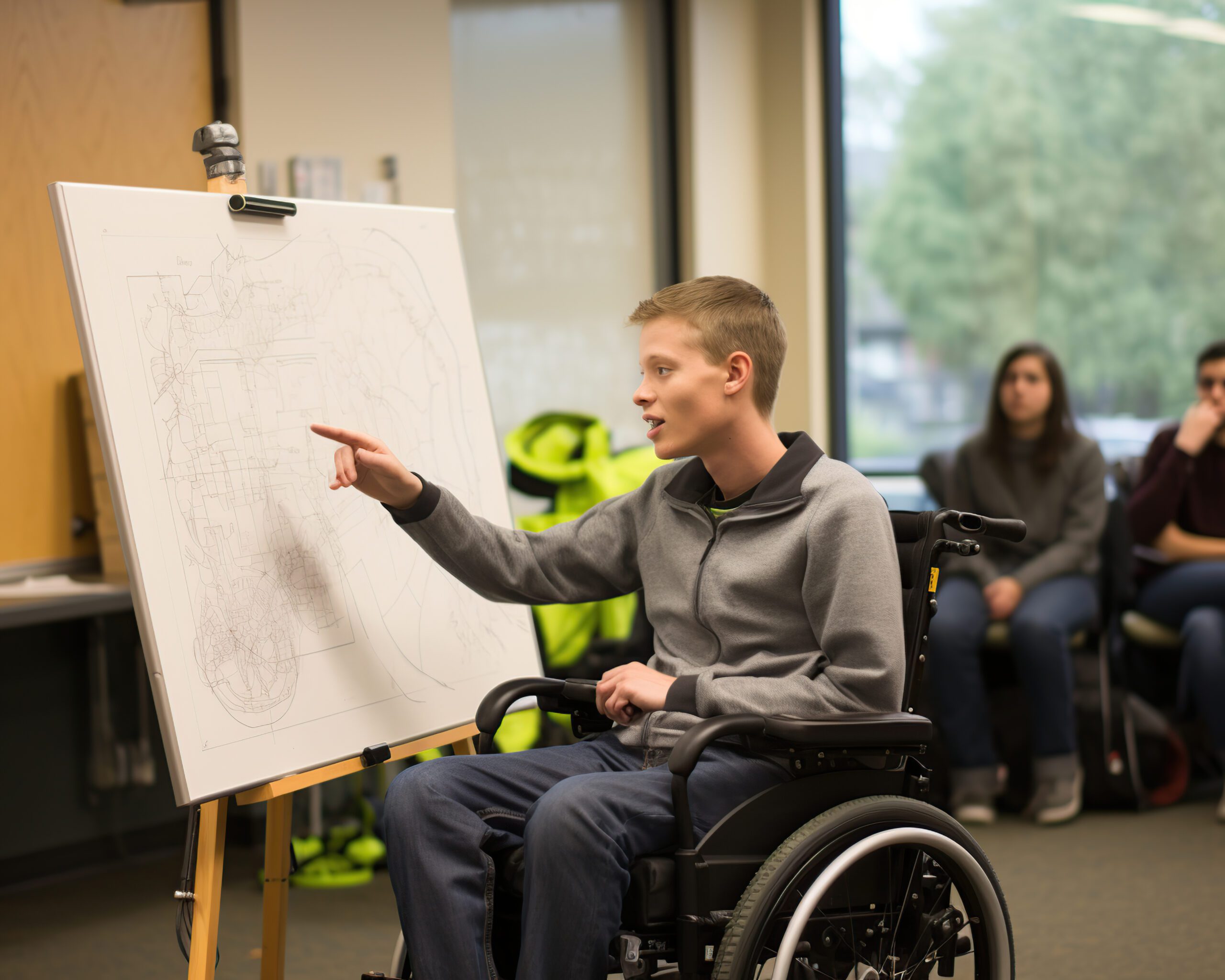If you’re an international student who is unsure of your next steps, then you can think about enrolling in an aged care course in Australia. You will have many career options if you graduate from an aged care program.
Working in aged care is rewarding. Furthermore, the number of aged care job vacancies in Australia has more than doubled year after year, and there are more jobs than workers. With so many job opportunities available, finding one can be a breeze.
Australia is always in need of enthusiastic and compassionate newcomers to the aged care industry. There will be plenty of job opportunities for you if you stay in Australia after finishing your aged care degree.
Before learning about government-funded aged care courses, let’s first find out what age care is, who it’s for, and its benefits.
What is aged care?
Aged care is a service that gives the elderly the assistance they need to live as normally as possible. Cooking, cleaning, and medication administration are examples of these services, which can be provided either in a person’s home or in an aged care facility.
Seniors in Australia and New Zealand can choose between government and private aged care services.
Who is aged care for?
Seniors in Australia and New Zealand do not have to be a certain age to qualify for government-funded aged care. They are instead eligible for aged care based on their need. However, people aged 65 and up are considered seniors and are frequently immediately qualified for aged care.
What are the duties of aged care workers?
Aged care workers are responsible for a wide range of tasks. A sample list of tasks that any aged care professional is expected to perform is as follows:
- Assisting seniors with their daily activities
- assisting the elderly in their movement
- Meal preparation and medication administration
- Complete housekeeping tasks such as dusting, laundry, and so on.
- Assisting the elderly with personal hygiene (e.g., bathing, shaving, dressing)
- Offering emotional and companionship support
- Performing personal errands (e.g., shopping, mail delivery, grocery)
Why should you study Aged Care in Australia?
If you are thinking about working in the Aged Care sector after finishing your degree, you should know that there are increasing job opportunities. If you’re an international student wondering what to do next, consider taking an aged care course in Australia. As an Aged Care graduate, you’ll have a plethora of career options.
Unlock Your Future in Business and Healthcare Today!
Aged Care is in high demand.
As Australia’s population ages, there will be plenty of opportunities for qualified aged care students. If you stay in Australia after finishing your aged care degree, you will have many job opportunities. And that number is expected to rise even higher in the near future, implying a plethora of career opportunities. Depending on your qualifications, here are some possible careers:
- Assistant in Care/Home Care
- Community Care Provider
- Supervisor of Care
- Leader of the Care Team
- Manager of Aged Care
Being job-ready
Another compelling reason to pursue Aged Care courses in Australia is that they are highly practical and provide you with hands-on experience. Australian aged care courses combine theory with hands-on workshops to help you succeed in the field. Furthermore, before you can be hired, all aged care courses in Australia must include a mandatory work placement at a certified aged care facility.
It’s fulfilling
Working in aged care involves helping clients engage in their preferred activities. This profession has the potential to improve someone’s life while also fostering meaningful relationships significantly. Making a positive difference in someone’s life is a wonderful experience, as well as an incredible accomplishment that you will remember for the rest of your life.
Practical skills
The benefit of taking an aged care course is that you will have numerous opportunities to practise the skills you will learn, both in and out of the classroom. Demonstrations, mannequins, and real-life equipment are frequently used in classroom settings to teach you essential on-the-job skills. Furthermore, many courses include a work placement at an aged care facility, which is an excellent way to put theory into practice and feel prepared for the job.
Rewarding Career Options
Working in the elderly care industry is a two-way street. As an aged care worker, you have the option of tailoring your career in a variety of rewarding ways. The various career options are:
Personal care: You’ll be working under private care providers, assisting the elderly with daily tasks in their own homes.
Residential care: You will be stationed in residential care or nursing homes and will be responsible for elderly residents.
Respite care: You will provide respite care for a primary carer who needs to take a break from their current responsibilities.
Community care: You will be providing social, physical, and emotional support to the elderly in your neighbourhood.
Never-ending opportunities for learning
You’ll be working with individuals from every aspect of life as an aged care worker. Not only will you be able to collaborate with your co-workers, from whom you will be able to learn a great deal, including knowledge, skills, and perspectives that will help you do better at work, but you will also be very involved in the lives of those you care for the elderly. We all have a story to tell, and what better way to learn about the world than from those who have lived it? You might be surprised by how much you can learn from those around you.
Make a difference
For many aged care workers, it’s all about experiencing firsthand what it’s like to make someone’s day better. Making someone’s day better is only the beginning. Whether it’s empowering clients to live independently at home with home care or uplifting residents with lifestyle activities at an aged care facility, your work will truly make a difference in people’s lives.
Some of the Government-Supported Aged Care Courses
This certification reflects the job of those who work in residential and/or community settings and follow a personalised plan to provide person-centred support to those who may need it because of age, disability, or other circumstances. Work entails exercising discretion and judgement in providing individual support, as well as accepting responsibility for one’s own outputs. Workers have a broad range of factual, technical, and procedural knowledge, as well as some theoretical understanding of the concepts and practise necessary to provide person-centred support.
The candidate must have worked a minimum of 120 hours as specified in the assessment requirements for the units of competency in order to meet this qualification.
Employment opportunities
Following completion of this course, you may be qualified for the following positions:
- Residential care worker
- Community care worker
- Care team leader
- Care Supervisor
This qualification reflects the role of support workers in aged care settings such as residential, home, and community settings. Workers will accept responsibility for their own outputs within defined organisational guidelines and maintain quality service delivery by developing, facilitating, and reviewing individualised service planning and delivery.
Employees might be expected to show leadership and bear a small amount of responsibility for the organisation, as well as the quantity and calibre of other people’s outputs, within certain bounds.
The candidate must have worked a minimum of 120 hours as specified in the assessment requirements for the units of competency in order to meet this qualification.
Employment opportunities
Following completion of this course, you may be qualified for the following positions:
- Residential care worker
- Community care worker
- Care team leader
- Care Supervisor
-
Certificate IV in Disability
People with disabilities, like everyone else, want to live fulfilling lives. You can help and empower people to overcome obstacles and achieve greater independence, self-reliance, and well-being in order to achieve their goals.
Certificate IV in Disability is a professional accreditation that focuses on the skills needed to care for people with disabilities in the community or in a residential setting.
Because this work necessitates a person-centred approach, we will train you to work confidently without direct supervision and even to coordinate a small team. Your education will combine theoretical and practical knowledge, preparing you to support people with disabilities in the healthcare industry.
A Certificate IV in Disability qualifies you to work as:
- Behavioural support officer
- Development officer
- Social educator
- Project officer (life enhancement team)
- Job coordinator
- Residential care officer
- Senior personal care assistant
- Disability support officer/worker
- Disability officer – day support
- Employment coordinator (disability)
- Lifestyle support officer – special schools
Eligibility Requirements for Government-Funded Aged Care Courses
To be eligible for Skills First subsidised training beginning January 1, 2023, you must meet the following criteria:
- You must be:
- a citizen of Australia, or
- a permanent resident of Australia, or
- a New Zealand national and
- You must be physically present in Victoria during training and evaluation.
There are also constraints. Skills The initial funding is limited to:
- Two courses at once
- Take two courses
Wrapping Up!
Starting a new career can be intimidating and not always simple. Fortunately, thanks to government assistance and flexible options for obtaining your qualification, such as short courses and online learning, your dream of a new, rewarding career in aged care is closer than you think.
The courses in aged care offered by The Bright College resemble the role of support workers who carry out specialised duties and functions in aged services, whether in a residential, domestic, or community setting. Students will take responsibility for their own outputs within defined organisation guidelines and maintain quality service delivery through the development, facilitation and review of individualised service planning and delivery.
To learn more about government-funded aged care courses in Australia and to take the first step towards a rewarding career in aged care, contact us today.




